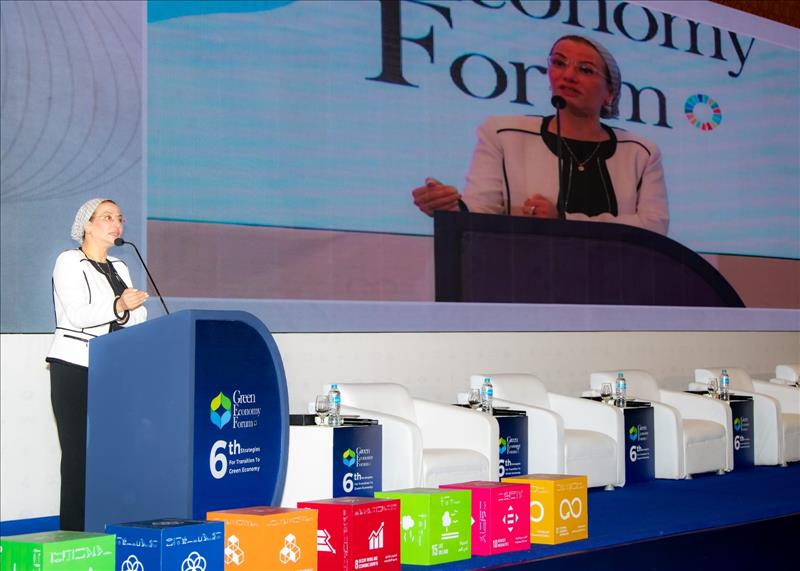
Egypt Advances Green Economy With Clear Legislation, Incentives, And Private Sector Engagement: Environment Minister
Egypt has introduced clear regulations to support the green economy. These include provisions for waste management, green hydrogen, and alternatives to plastic. Tax exemptions further encourage private sector participation.
The government prioritizes environmental efforts, with strong backing from political leadership. Educating citizens is a key aspect, emphasizing their role as partners in environmental preservation.
Minister Fouad outlined Egypt's strategic approach:
-
Pollution Reduction: Addressing air, water, sea, and soil contamination.
Sustainable Resource Use: Managing natural resources responsibly.
Global Challenges: Tackling climate change and biodiversity issues.
Supportive Climate: Creating an enabling environment through genuine partnerships.
Egypt actively engages various sectors, including youth, women, and the private sector. The National Council for Climate Change, chaired by the Prime Minister, monitors climate strategy implementation. Ideas from COP27 contribute to projects like renewable energy plants and climate-resilient crops.
The Waste Management Regulation Law (2020) promotes circular economy principles. The private sector plays a vital role in managing infrastructure such as recycling plants and sanitary landfills. Cement factories now explore alternative fuels, enhancing environmental perception and competitiveness.
Egypt's active role extends beyond its borders. From Africa to COP27, it contributes to regional and international environmental agreements. Hosting the 24th Conference of the Parties to the Barcelona Convention in 2025 further underscores its commitment to sustainable development.
Fouad highlighted the importance of all sectors-agriculture, industry, research centres, youth, and others-working together on the green economy and environment. All sectors are interconnected and affected by various environmental challenges. Hence, investing in youth and human resources is essential. The state has focused on integrating climate change and biodiversity concepts into educational curricula from school to university to change the societal culture and create an aware generation capable of addressing future environmental challenges and their impacts.

Legal Disclaimer:
MENAFN provides the
information “as is” without warranty of any kind. We do not accept
any responsibility or liability for the accuracy, content, images,
videos, licenses, completeness, legality, or reliability of the information
contained in this article. If you have any complaints or copyright
issues related to this article, kindly contact the provider above.
















Comments
No comment